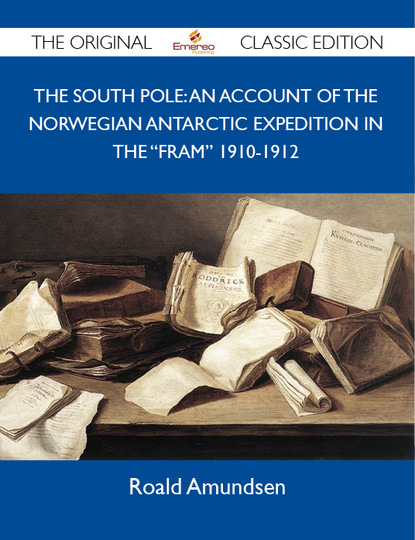
The South Pole: An Account of the Norwegian Antarctic Expedition in the "Fram" 1910-1912 - The Original Classic Edition скачать fb2
Amundsen Roald - The South Pole: An Account of the Norwegian Antarctic Expedition in the "Fram" 1910-1912 - The Original Classic Edition краткое содержание
Recent years have seen a re-examination of the Golden Age of Antarctic Exploration. Roland Huntford in his excellent books The Last Place on Earth and Shackleton helped to debunk the myth of the glorious failure (Scott the Martyr) as an example to follow. <p> The greatest tale of this age was surrounded by no great tales of hardship, no honeyed or sanitised versions of the deed. In this book we hear in the words of the greatest exponent of the art of polar travel, the story of that rarest of plans – the perfectly executed coup. <p> For a coup it was. When Amundsen turned from the North Pole to the South after the question of the great nail had been settled by Cook & Peary, his decision was treated in many sectors (most notably an unbalanced and jingoistic British Press) as underhanded and double dealing. Amundens account of the reasoning behind it makes clear that any deceit was necessary to ensure no forestalling of his plans by others – not only Scott. To ensure the future of his extended plan (the drift across the Arctic which was eventually carried out in the Maud) he knew the Press Barons would need an exclusive and juicy story. The South Pole would give him this currency. <p> The book is written in an honest and clean style – an extension of the Man and his nature. The hardships faced are almost disguised by the simple tale of their telling. To strike up an unknown glacier and forge his way over virgin ground on the way to the polar plateau and the Pole itself displays fortitude and grit we can only marvel at in todays world. But his description of the task is hidden behind a work-a-day narrative. To truly appreciate the splendour of the achievement is difficult in our modern era. <p> One cannot help but admire the total outcome of the plan. There are few tales in history and few great men who can truly say they accomplished exactly what they set out to do in the manner in which they planned. Those who can are Masters of their field. Amundsen is such a man – and master. <p> A feature of this book is the credit given by Amundsen to those who went with him. Where others claimed responsibility for the great deeds of their men, Amundsen retreats to the background and gives the credit to those who did the act. Natural humility is a trait of the Norwegian nature and Amundsen shows this in the writing of the book. There is no playing to the crowd but deeds are allowed to speak for themselves. <p> To appreciate the tale, read the book and marvel.
Скачать книгу «The South Pole: An Account of the Norwegian Antarctic Expedition in the "Fram" 1910-1912 - The Original Classic Edition» Amundsen Roald
Чтобы оставить свою оценку и/или комментарий, Вам нужно войти под своей учетной записью или зарегистрироваться



